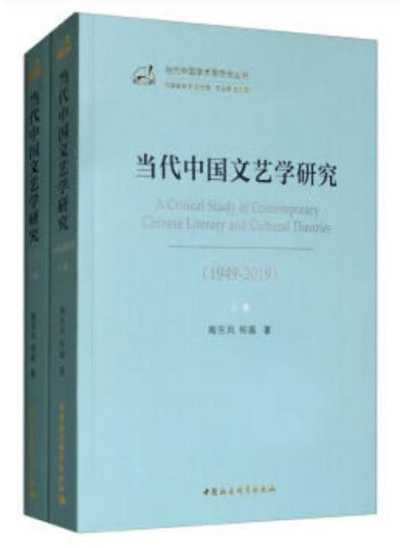Examining literature and art theories in historical contexts

A Critical Study of Contemporary Chinese Literary and Cultural Theories (1949–2019)
A Critical Study of Contemporary Chinese Literary and Cultural Theories (1949–2019), co-authored by Tao Dongfeng, a professor from the School of Literature at Capital Normal University, and He Lei, a professor from the School of Chinese Language and Literature at Shandong Normal University, extracts 27 issues from contemporary Chinese literature and art theories. For each issue, the authors conduct contextualized analysis and go deep into complicated social contexts at the time, exploring the complex motivations behind those literary events.
Contextualizing the stories of contemporary Chinese literature and art theories can be interpreted as "going back to the scene of events." For example, people may hold positive or negative perceptions of the New Folk Song Movement in 1958. This book provides a different approach. It argues that given the pressure from complex domestic and international environments in the early days of the PRC's founding in 1949, China was committed to seeking a path of social development and modernization with national characteristics, and tried to strike a balance between the dual demands for cultural modernity and cultural nationality. The New Folk Song Movement was an important part of this exploration.
The debate over the "path of poetry's development" deals with the issue of cultural leadership, which is closely related to the cultural development direction of the ruling Party and the demand for legitimization of a new regime. Actually, the movement was not merely about folk songs, but a highly national cultural strategy.
In addition to contextual analysis, the book takes another methodological standpoint that highlights the publicity of contemporary Chinese literature and art theories. Almost all major theoretical discussions in the field of contemporary Chinese literature and art have been conducted as public topics and public events that transcend literature and art itself, including the establishment of "two orientations" for literature and art to serve the people and serve socialism in the new era.
If the reform and opening up beginning in the late 1970s is set as the watershed moment, the natures and forms of the public sphere in the previous 30 years and the 40 years after, have witnessed tremendous changes, transforming the public nature of contemporary Chinese literature and literary theories.
Liu Guozhen is an associate professor from the School of Communication at Shandong University of Political Science and Law.
Edited by YANG LANLAN

 PRINT
PRINT CLOSE
CLOSE